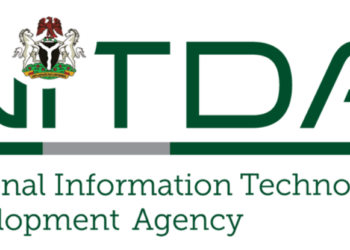The National Information Technology Development Agency (NITDA) has inaugurated a Startup Labelling Committee as part of moves to implement the Nigeria Startup Act (NSA)
The Agency announced the inauguration of the Committee in a statement signed by its Head of Corporate Affairs & External Relations, Hadiza Umar.
NITDA had earlier announced that a total of 12,948 startups had registered on the portal opened for labelling as of April this year.
According to the statement, the committee, inaugurated by the Director-General of NITDA, Mallam Kashifu Inuwa Abdullahi, comprises representatives from both the public and private sectors.
The committee is to, among others, review and evaluate startups’ applications for label based on criteria defined in the Act and any additional criteria that may ensure quality for the label; Periodically review and update additional labelling criteria to ensure alignment with industry trends; Conduct an impartial evaluation of submitted applications for Startup Label.
Startups role in economy
Speaking during the inauguration ceremony, the NITDA DG acknowledged the pivotal role startups would play in propelling the nation’s economic development, and the significance of the committee’s work in nurturing and supporting these enterprises.
He elaborated on the various initiatives and support mechanisms the government planned to implement, aimed at reducing hurdles and providing financial assistance and mentorship opportunities to young entrepreneurs.
Inuwa expressed optimism about the future, asserting that with the right support, these budding innovators could transform their ideas into thriving enterprises, thus contributing significantly to job creation and the overall economic prosperity of Nigeria.
The NITDA DG added that the committee would be instrumental in establishing a robust legal and institutional framework for the successful implementation of the Startup Act saying their collaborative efforts would ensure a participatory approach that benefitted all stakeholders within the Nigerian startup ecosystem.
“The composition of the committee reflects the emphasis on collaboration. Representatives from government agencies, industry experts, investors, and startup founders will bring their diverse perspectives and experiences to the table. This collaborative approach is expected to lead to a more efficient and effective labelling process, ultimately benefiting the growth of Nigerian startups,” he stated.
Terms of reference for the committee
Speaking on the roles and responsibilities of the Committee, the National Coordinator, Office for Nigeria Digital Innovation, Victoria Fabunmi, said the terms of reference for the advisory committee include to:
- Recommend on issuance or otherwise of Startup Label based on defined criteria.
- Provide feedback/comments/recommendations on areas of improvement where a start-up’s application is rejected.
- Where necessary, dedicate time to further engage startups for more clarity/details on the information provided.
- Periodically review its previous activities and data on labelling, to identify/recommend opportunities and gaps that policymakers may need to place added emphasis on.
- Periodically review workload capacity and recommend a fair ceiling for the number of applications to be considered per period.
She also stated that the Labelling Committee comprised nine members from the following: Four representatives of incubators; Two Representatives of the Public Sector (NITDA, NSIA); Two Representatives of the Civil Society and a Portal Coordinator – to serve as Secretary.
What you should know
- The NSA, enacted on October 19th, 2022, established a legal and institutional framework to foster the development and growth of Nigerian startups.
- A critical provision within the Act is the Startup Label. This label recognises eligible startups, granting them access to the various benefits outlined in the NSA.
- The issuance of the Startup Label hinges on a thorough assessment and validation process to ensure a startup meets the eligibility criteria defined by the Act.
- Under the Act, companies labelled as startups will benefit from some tax reliefs and incentives. Labelled startups with at least ten employees where 60% of the employees have no prior work experience within three years of graduation or any vocational program have access to percentage-based tax relief.






















